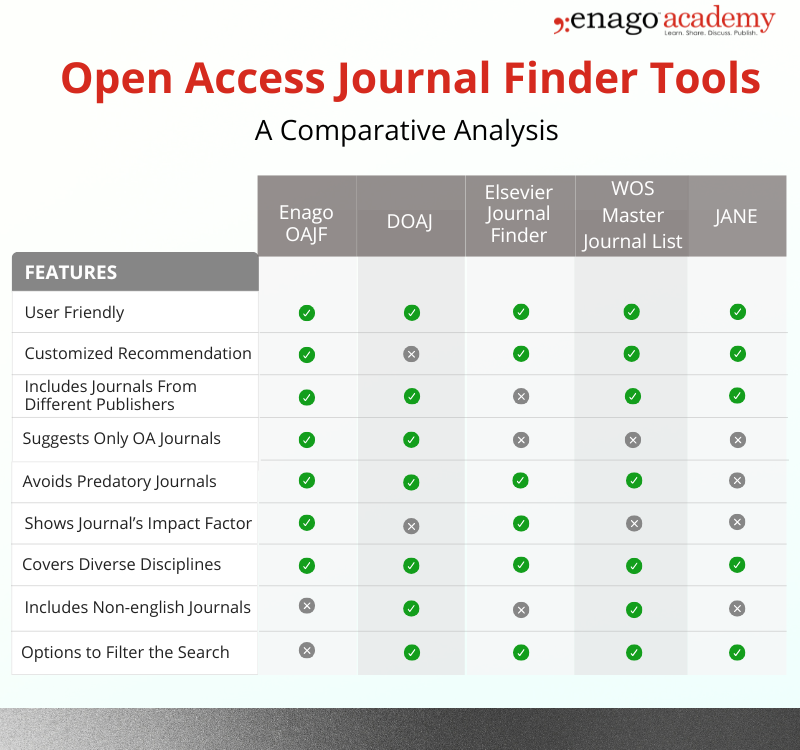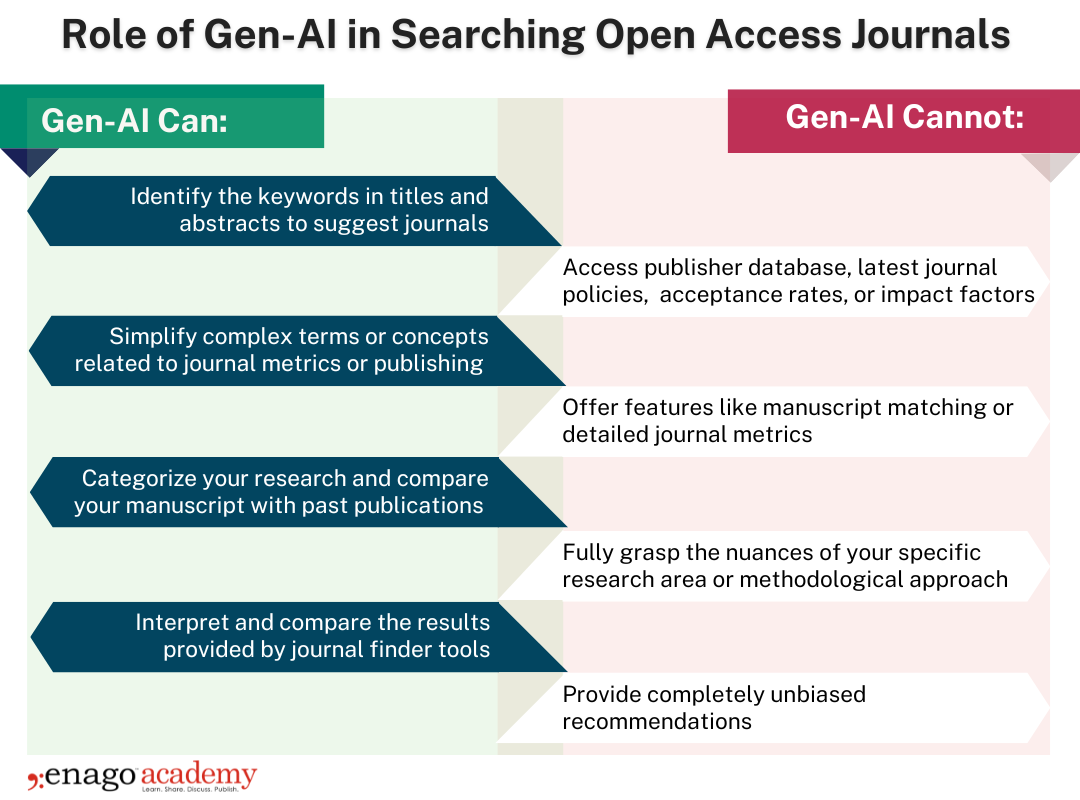Simplifying the Journal Selection Dilemma: 5 tools for finding open access journals

The growing demand for accessible knowledge, free from the constraints of paywalls, has made the hunt for reliable open access (OA) journals more pressing than ever. Whether you’re an undergraduate researcher or a seasoned academic, identifying trustworthy, high-quality OA journals is necessary to ensure that your work reaches a broad audience while ensuring affordability.
However, with the proliferation of journals — including predatory ones — how can you ensure that you’re publishing or accessing a credible journal? Finding credible platforms to publish high-quality research while avoiding scams requires careful consideration.
To help you in this process and fasten your OA journal identification process, enter specialized tools designed to help researchers find the right journal!
5 Open Access Journal Finder Tools
Let’s explore five powerful tools that can assist in your search for the ideal open access journal:
1. Enago Open Access Journal Finder
Enago’s OA Journal Finder (OAJF) is a free and user-friendly tool tailored for both early-career and experienced researchers. By entering keywords or manuscript abstract, the tool suggests suitable OA journals for publishing your research. Its strength lies in identifying credible OA journals while filtering out pay-walled or subscription-based options. This tool focuses on indexing reputable OA journals and avoids predatory publishers. As a result, it is an excellent option for those looking to publish without falling into common traps.
2. Directory of Open Access Journals (DOAJ)
DOAJ is one of the most trusted resources for open access content, offering a comprehensive directory of over 21,000 OA journals across disciplines and languages. It’s a go-to for researchers who want to ensure their work is published in a reputable journal. Furthermore, their stringent criteria eliminate predatory journals and ensure that the journals listed are legitimate.
3. Elsevier Journal Finder
Elsevier’s tool uses smart matching technology to suggest journals from the Elsevier portfolio based on your manuscript’s title and abstract. It covers both open access and pay-walled journals and is helpful for researchers looking for options within Elsevier’s wide range of journals. Although the tool is free to use, accessing the suggested journals may require institutional subscriptions.
4. Web of Science Master Journal List
The Web of Science (WOS) Master Journal List allows researchers to search for reputable journals across various indexing platforms. While it’s not solely focused on OA journals, it’s a valuable tool for verifying the credibility of a journal and ensuring it isn’t predatory. Backed by Clarivate, the journals listed are indexed in reputable databases and offers insights on their citation impact.
5. Journal Author Name Estimator (JANE)
JANE is a unique tool that uses an AI-based algorithm to match your article title or abstract with journals that have published similar content. It’s particularly useful for researchers looking to submit to journals that have already shown interest in similar topics. It includes both OA and subscription-based journals. Additionally, it is free to use and open to all researchers.
From Enago’s focus on credible OA options to DOAJ’s comprehensive directory, Elsevier’s smart matching technology, Web of Science’s credibility checks, and JANE’s AI-driven approach, each tool offers unique strengths to address different aspects of the journal selection process. By using these resources, researchers can ensure that their work finds a reputable home that maximizes visibility and impact.
 As we explore these tools, it’s important to recognize the growing influence of AI in refining the journal search process. Publisher-specific tools such as Enago Read Journal Finder, Springer Nature Journal Suggester, Wiley Journal Finder, IEEE Publication Recommender, Elsevier’s JournalFinder, Taylor & Francis’ Journal Suggester, etc. is backed by different AI technologies to improve their efficiency. However, it is important to distinguish between AI algorithms embedded in these tools and general-purpose AI chatbots when it comes to journal selection.
As we explore these tools, it’s important to recognize the growing influence of AI in refining the journal search process. Publisher-specific tools such as Enago Read Journal Finder, Springer Nature Journal Suggester, Wiley Journal Finder, IEEE Publication Recommender, Elsevier’s JournalFinder, Taylor & Francis’ Journal Suggester, etc. is backed by different AI technologies to improve their efficiency. However, it is important to distinguish between AI algorithms embedded in these tools and general-purpose AI chatbots when it comes to journal selection.
The Role of AI in Searching Open Access Journals
Several studies have demonstrated the role of AI or machine learning in identifying appropriate journals, making searches smarter and more precise. However, researchers often confuse using AI algorithms in the journal-finder tools with using AI chatbots in journal selection. While both utilize AI, their applications and limitations differ significantly.
While AI algorithms in journal finder tools excel at the specific task of matching manuscripts to appropriate journals, AI chatbots can complement this process by offering general advice, clarifying doubts, and providing a broader perspective on the publishing landscape. However, researchers should be aware that chatbots may not always have access to the most up-to-date or comprehensive journal information.
 For optimal results, researchers should consider using both: Specialized OA journal finder tools for accurate journal matching and AI chatbots for general guidance and support. This approach will combine the strengths of both the AI applications while compensating for their individual limitations.
For optimal results, researchers should consider using both: Specialized OA journal finder tools for accurate journal matching and AI chatbots for general guidance and support. This approach will combine the strengths of both the AI applications while compensating for their individual limitations.
By using these resources strategically, researchers can optimize their publishing journey, ensuring their work finds the right platform for maximum impact. Furthermore, they can contribute to the broader goal of making knowledge more accessible to all. As we move forward, the continued development of these tools will undoubtedly play a vital role in embracing community over commercialization.











Very helpful!